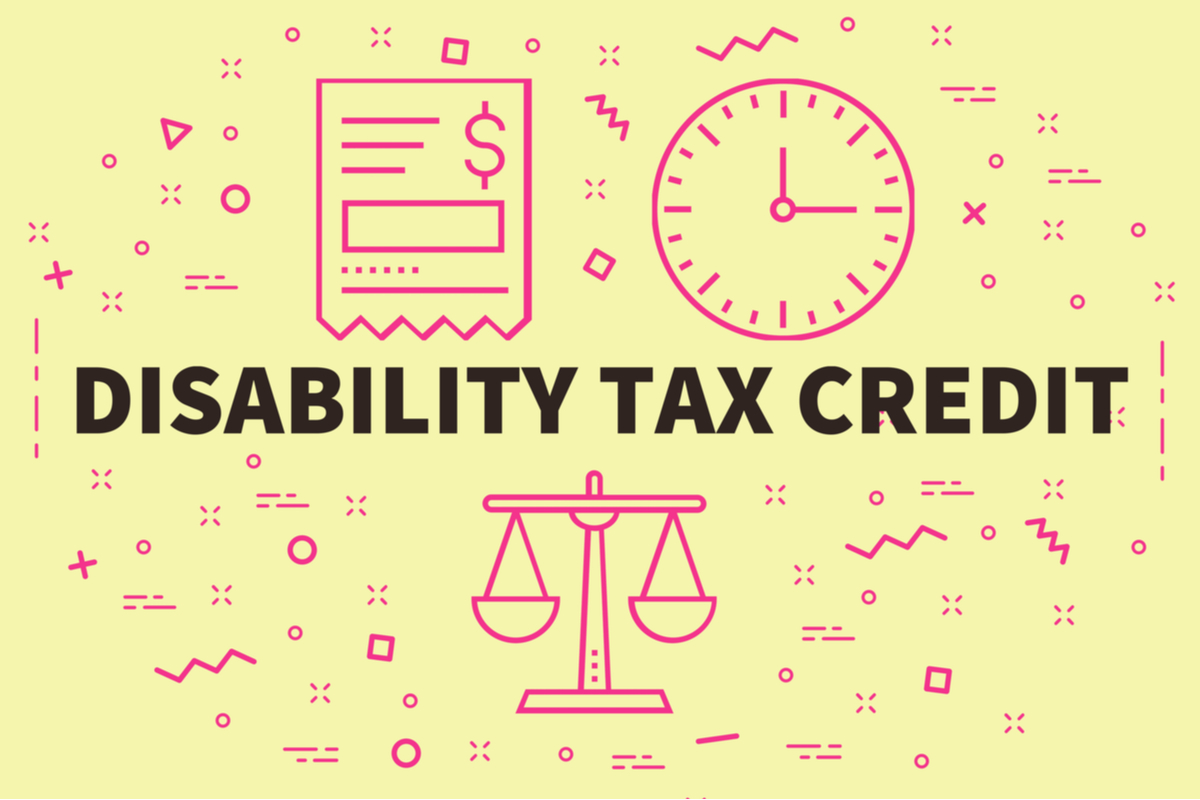What is the Disability Tax Credit?
If you are a person with a disability, you may be qualified to receive certain disability tax credits and deductions. What does that mean? It means that if you qualify, you may be able to eliminate your income tax liability. More importantly, you may end up receiving money from the IRS.
Who Are the Disabled?
A person is considered disabled if he or she has:
- a disability, whether physical or mental, that limits your ability to engage in a substantial gainful activity (employment). For example, deafness and blindness.
- an impairment, whether physical or mental, that limits your ability to perform one or more major life activities such as speaking, learning, or performing manual tasks.
Government Programs for Disabled Persons
Individuals with disabilities experience financial challenges. According to a study conducted by the University of New Hampshire's Institute on Disabilities (IOD) in 2016, Americans with disabilities continue to face more challenges in finding work, earning income, avoiding poverty, and staying healthy. Because of this, the government has three major federal disability assistance programs – the Social Security Disability Insurance, the Supplemental Security Income Disability Program, and the Veterans Administration Disability Benefits.
The government also provides loans for disabled individuals who require emergency financial assistance. Loans for disabled people are not the same as personal loans. For example, the Department of Social Security provides qualified individuals with an emergency loan that is equal to one month's benefits entitlement which means that the loan amount is set. In addition, payment for the loan is made from your Supplemental Security Income (SSI) benefit payments. Take note that the government is not the only organization that provides disability loans. Banks and other financial institutions also provide speciality loans for individuals with disabilities. Just beware of same-day loans that are offered by private companies as they often come with high-interest rates and fees, much higher compared to personal loans for bad credit. Always be diligent. You can find more information on how to get loans for people on disability at our blog.
Other government programs for the disabled include housing grants for disabled veterans as well as scholarships and grants for disabled people. Some examples of scholarships include Autism Scholarships, Learning Disability Scholarships, Scholarships for the Deaf and Hearing Impaired, and Wheelchair User Scholarships. Grants for disabled people, on the other hand, cover a wide variety of situations such as education, health care, transportation, housing repairs, and career adjustments.
Credit for Disabled Adults

Disabled adults can avail of disability tax credits in different ways. One example is the credit for the elderly and disabled. This tax credit is available to retired individuals who are permanently and totally disabled with an adjusted gross income that does not exceed $17,500 (for individuals with a filing status of single, head of household, or qualifying widow or widower) or $20,000 (for those who are married and filing jointly and only one spouse qualifies). Take note that there are some payments that are not considered disability income. For example, a lump-sum payment for accrued annual leave is not considered disability income.
Another example of disability tax credits for adults is the Earned Income Tax Credit or EITC. The IETC allows low-income Americans, including those with disabilities, to get cash refunds through this program. According to the IRS, a disabled individual who is eligible for this tax credit can get a refund of up to $6,318 (with three or more qualifying children).
Who can avail of the EITC? This program is available to people ages 25 to 64 years old who have been residing in the US for a minimum of 6 months. An applicant must not be a dependent or child. In addition, he or she must have earned an income (e.g., wages, tips) of up to $15,010, though this figure increases based on an individual's tax filing status and the number of qualifying children in his or her household. Take note that "earned income" does not include income from Social Security Disability Insurance (SSDI), Supplemental Security Income (SSI), military disability benefits, food stamps, Medicaid, or any other government assistance. To find out if you qualify for the EITC, you can use the EITC Assistant tool found on the IRS website.
Credit for Disabled Children
Disability tax credits are not just for disabled adults. There's also the child disability tax credit. This tax break is actually given to caregivers of children with disabilities and known as the child and dependent care credit. This is a tax credit for paying someone to look after your child (or dependent) while you work or are looking for work. This tax break cannot be used to pay for your spouse to take care of the child. In general, the credit is 20% to 30% of up to $3,000 in qualifying caregiver expenses per dependent. For example, if you incurred $3,000 in caregiver expenses, the minimum credit that you can qualify for is $600, which is 20% of $3,000.
In order to qualify for this credit, the tax filer needs to have a job and have earned income. Take note that this tax break is not limited to low-income earners. High-income earners may also avail of the credit; the credit given is just smaller. Keep in mind that a qualifying child must meet the age, relationship, residency, and joint return test. In addition, individuals can only avail of this credit if he or she owes the IRS income tax.
Special Deductions for Disabled People

Aside from disability tax credits, disabled individuals can also avail of tax deductions which reduces their taxable income.
- Impairment-Related Work Expenses: If your disability substantially limits your capability of performing one or more of your tasks at work, you can deduct your impairment-related expenses. These are expenses that cover for the care and services you require in order to perform your work. For example, a blind person can deduct the cost of employing a reader for work.
- Medical Expenses: Disabled individuals can deduct medical expenses such as health insurance premiums, unreimbursed hospital stays, and prescription drugs as long as these are itemized and the total does not exceed 10% of your adjusted gross income.
SSDI Benefits
Social Security Disability Insurance is a federal assistance program that pays monthly benefits to individuals who become disabled before they retire and are no longer able to work. For this reason, this program is often referred to as “worker’s disability.” To avail of the benefits, an individual must have worked a specific number of years, paying Social Security taxes. The applicant must also have a disability which has lasted for at least a year which prevents you from performing basic work-related activities and has made you unable to get substantial gainful employment.
SSI Benefits
Supplemental Security Income Disability Program is, as we've mentioned, a federal assistance program for low-income disabled individuals, people who are 65 years of age or older, or families with children who have disabilities. In order to qualify for SSI benefits, you need to have a very limited income as well as assets that equal to no more than $2,000 (or $3,000 for a married couple). The amount a person gets will depend on a variety of factors, including the amount of their monthly income and location.


